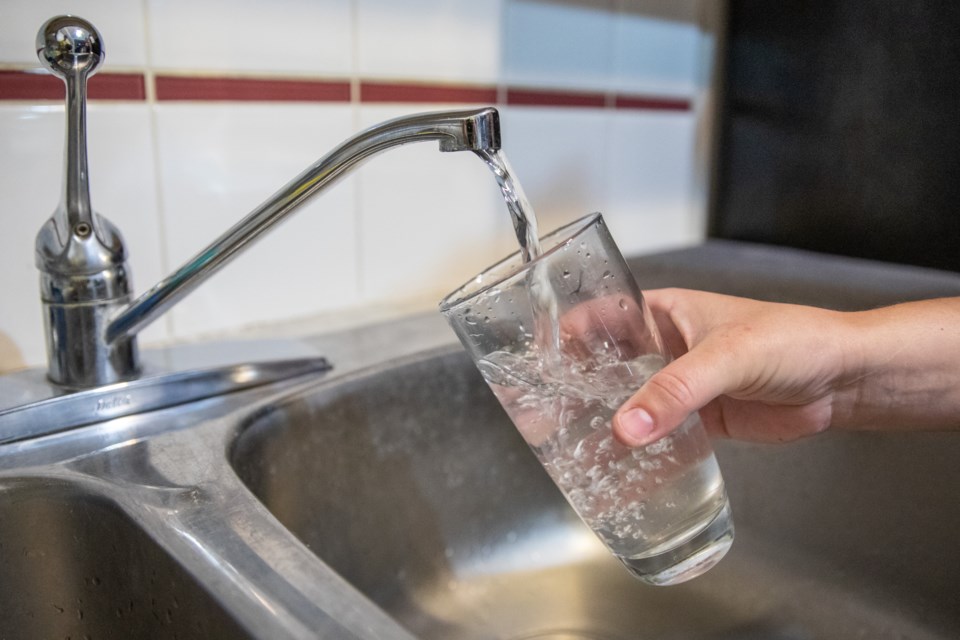Unsafe drinking water is an issue for dozens of Indigenous communities throughout Canada. In some cases it’s been a problem for decades. While the federal government is working to address those concerns, so too is a group of Guelph residents.
They are the Rotary Club of Guelph’s Indigenous Awareness Committee.
“We became aware that we needed to do more,” Dianne Dance, committee chair, said of what inspired the group’s formation in 2012. “Rotary was so good at doing things around the world, we thought ‘we’ve got to do more here with our own First Nations people.”
Since then they’ve held a number of events aimed at increasing the understanding of issues facing Indigenous people, including hosting a presentation from a second-generation residential school survivor, and another featuring a prominent Indigenous author.
About a year ago, the committee heard from a guest speaker with Water First, an organization that, among other things, provides scholarships to Indigenous youth so they can become provincially certified water system operators – something that compliments government efforts to address failing or absent infrastructure.
So began efforts to establish a small local donation that evolved into a global grant from Rotary International – the details of which Dance expects to be released within a couple weeks.
“It’s one of the first times that we are the country receiving money. Usually we are the ones sending money over to Africa or wherever the need is,” she said. “There is a need (in Canada) and it’s not getting addressed. Our Indigenous people need help.
“As Canadians, I think you get frustrated that our own First Nations people are hurting.”
Prime Minister Justin Trudeau previously pledged to eliminate drinking water advisories in Indigenous communities by next March. Those efforts, explained Guelph MP Lloyd Longfield, have been delayed due to the pandemic.
“We’re re-doing the schedule so we don’t have what the revised date is going to be,” he told GuelphToday. “Planes weren't flying. Crews getting onto site was a problem. Material getting shipped in was a problem.
“We’ve missed a lot of the construction plans that we had for the summertime, but we’re still working on that.”
On Oct. 19 the northwestern Ontario community of Neskantaga First Nation, which has been under a boil water advisory for the past 25 years, was evacuated after an oily substance was discovered in the reservoir. More than 200 residents have been put up in Thunder Bay hotels, about 450 kilometres from their homes.
“We don’t know whether it’s a safe community or not because of what’s in the water,” said Longfield. “They’re still trying to identify what that oily stuff is in the water.”
The federal government is in the process of building a $16.4 million water treatment plant in that community, as well as upgrades to the water distribution system.
Longfield points out that since 2015 government efforts have led to the lifting of 88 boil water advisories in Indigenous communities. The Indigenous Services Canada website notes 61 remain in place.
“We do have some coming on and going off depending if you have a weather event or a situation like this where parts of the water system aren’t working properly,” Longfield said of the list.
One of the problems Indigenous communities can face, noted Dance, is a lack of enough skilled water system operators, which is where the upcoming Rotary International grant comes in.
“If you have no skilled water operators, it doesn’t get run right and then people don’t trust the system,” she said, noting the grant will help Indigenous youth take part in a 15-month internship and certification program.
“Then they can go back to their community, with a career, and ensure for years that the water in that community will be drinkable.”
Longfield, an honorary member of the Rotary Club of Guelph, is pleased by the group’s efforts to address water safety issues, as well as others in the Guelph community. He points to studies being undertaken at the University of Guelph as well as equipment supplied by several city businesses.
“I’m proud to see that Guelph is taking an active role,” said the MP. “I think it’s great that there’s interest from Guelph on these topics.”
